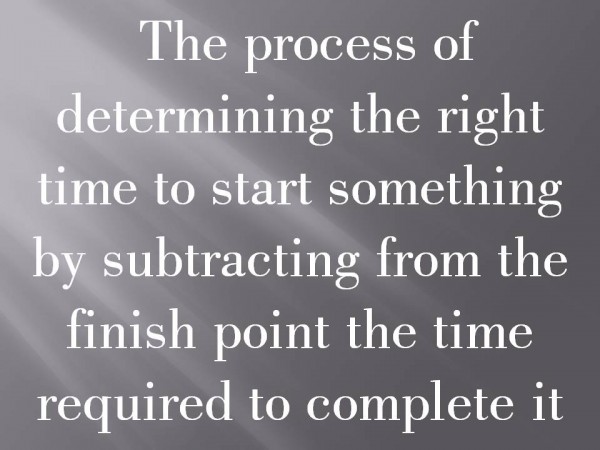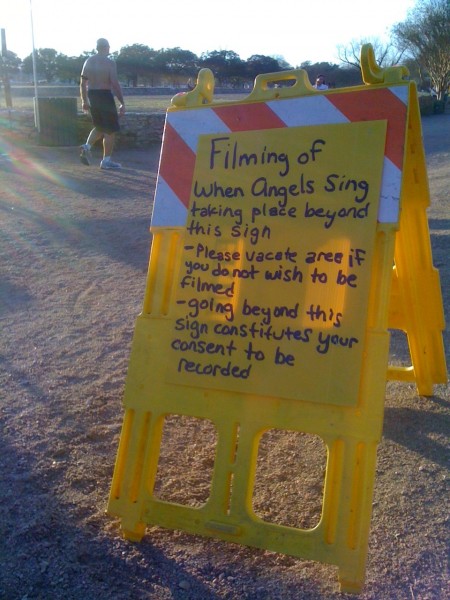The video below is a time lapse experiment from a trip to Big Bend country. The settings were off and the camera battery died before the sun set, but the scenery was beautiful enough to post incomplete
I
The video below is a time lapse experiment from a trip to Big Bend country. The settings were off and the camera battery died before the sun set, but the scenery was beautiful enough to post incomplete
I
NOTE: This post was originally published as a bulletin article and on the merkelchurchofchrist.org blog
“ [Jesus] went to Nazareth, where he had been brought up, and on the Sabbath day he went into the synagogue, as was his custom. He stood up to read, and the scroll of the prophet Isaiah was handed to him.” Luke 4:16-17 (NIV)
The congregational reading of scriptures in synagogues was a foundational part of Jewish life when Jesus was growing up, a custom carried on in the early church of Christ. There were practical reasons for public reading the scriptures; because each copy was hand written (that’s what manuscript means), communities of believers had to share limited manuscripts or in some cases, like letters from Apostles, share with other communities.
 The invention of the printing press and subsequent printing of the first Bible in the 1450s led to many positive advances in Christianity like the reformation movement and personal Bible study. However, the printed Bible did not change Paul’s instructions concerning the conduct of Timothy and the early church:
The invention of the printing press and subsequent printing of the first Bible in the 1450s led to many positive advances in Christianity like the reformation movement and personal Bible study. However, the printed Bible did not change Paul’s instructions concerning the conduct of Timothy and the early church:
“…devote yourself to the public reading of Scripture, to preaching and to teaching.” 1 Timothy 4:13(NIV)
Beginning this Sunday we will incorporate scripture reading into our morning worship assembly (ekklésia). Like the early church we will hear the Word of God as one body and one heart. I encourage you to bring your Bibles and follow along as we begin reading the Gospel of John. We will be using New International Version which, according to a recent survey, is the translation most used in churches of Christ.
“Blessed is the one who reads aloud the words of this prophecy, and blessed are those who hear it and take to heart what is written in it, because the time is near.” Revelation 1:3 (NIV)
Shalom
If I had seen a Christian living what Christ taught, then I myself may have followed and become a believer in the beautiful teachings of Jesus. Mahatma Gandhi
Jesus had a plan…and he executed it right on time.
As the time approached for him to be taken up to heaven, Jesus resolutely set out for Jerusalem. Luke 9:51 (NIV)
Short of the divine knowledge Jesus possessed, few of us would be able to deliver exactly on time with as far to travel and as many things to do. Along the way he taught parables, eased Martha to the better choice, confronted demons, expressed woes to the pharisees, healed people, dined with his disciples, and prayed all night before being arrested…right on time.
Granted, the things we do day-to-day don’t have eternal consequences for all of humanity, but why do we seem to always miss deadlines, cram all night to study or finish a project, or flat out miss deadlines? We’ve lost the art of backward planning.
 Backward planning is the process of determining the right time to start something by subtracting from the finish point the time required to complete it .
Backward planning is the process of determining the right time to start something by subtracting from the finish point the time required to complete it .
Here’s a simple example: It takes 2 hours to drive to your mothers and you need to be there by 7:00pm. Subtract 2 hours from 7pm and you need to leave at five. WAIT, WAIT…don’t stop reading, it gets better.
What we fail to do is apply this simple concept to more complex projects like the yearly report, your masters degree thesis, or even family panning. Here’s some simple steps to backward plan your next project.
 I was nearing the end of my semi-routine run along Lady Bird Lake in Austin Texas when on the trail in front of me was a yellow sign announcing the filming of the movie “When Angels Sing” and warned that traveling beyond the sign “constitutes your consent to be recorded.” Naturally I did what most American men would do; I pepped up my step, fixed my posture, and ran on through hoping for a split-second opportunity to tell my daughters “THERE I AM” in a movie theater. In the small (microscopic) chance I make it onto the big screen my daughters will see an image of an athlete but miss the reality of their father gasping for air just off screen. What they see was temporary, the unseen is real.
I was nearing the end of my semi-routine run along Lady Bird Lake in Austin Texas when on the trail in front of me was a yellow sign announcing the filming of the movie “When Angels Sing” and warned that traveling beyond the sign “constitutes your consent to be recorded.” Naturally I did what most American men would do; I pepped up my step, fixed my posture, and ran on through hoping for a split-second opportunity to tell my daughters “THERE I AM” in a movie theater. In the small (microscopic) chance I make it onto the big screen my daughters will see an image of an athlete but miss the reality of their father gasping for air just off screen. What they see was temporary, the unseen is real.
I’m reminded of Paul’s message to the church in Corinth who must have been going through spiritual battles causing them to lose sight of greater rewards. The church had been focusing on an image they thought was real and losing heart in the process. Paul is telling them to look just off screen at the eternal glory that is unseen but oh so real.
Therefore we do not lose heart. Though outwardly we are wasting away, yet inwardly we are being renewed day by day. For our light and momentary troubles are achieving for us an eternal glory that far outweighs them all. So we fix our eyes not on what is seen, but on what is unseen, since what is seen is temporary, but what is unseen is eternal. 2 Corinthians 4:16-18 (NIV)
In the Parable of the Good Shepherd (Or Parable of the Lost Sheep) the Pharisees come face to face with the prophesy of Ezekiel, they have failed as the shepherds go intended them to be and through their religion, have neglected the lost sheep. The main point of the parable is that God loves his sheep and only through the good shepherd (Jesus) will the lost sheep be found and there will be great joy in heaven. Luke 15:1-7, Ezekiel 34, John 10:1-18, Matthew 18:10-14 Link to Sermon Notes
Scripture Reading: Luke 15:1-7
1 Now the tax collectors and sinners were all gathering around to hear Jesus. 2 But the Pharisees and the teachers of the law muttered, “This man welcomes sinners and eats with them.”
3 Then Jesus told them this parable: 4 “Suppose one of you has a hundred sheep and loses one of them. Doesn’t he leave the ninety-nine in the open country and go after the lost sheep until he finds it? 5 And when he finds it, he joyfully puts it on his shoulders 6 and goes home. Then he calls his friends and neighbors together and says, ‘Rejoice with me; I have found my lost sheep.’7 I tell you that in the same way there will be more rejoicing in heaven over one sinner who repents than over ninety-nine righteous persons who do not need to repent. Luke 15:1-7 (NIV)
Context: Jesus is addressing the Pharisees who are critical of his association with sinners. Both presumably are hearing his response to them in the form of three parables, the parable of the lost sheep, the parable of the lost coin, and the parable of the loving father.
Outline
1. “Suppose one of you…”
2. “loses one of them “ (Bad shepherd)
3. “And when he finds it “ (Good Shepherd)
1…‘This is what the Sovereign LORD says: Woe to you shepherds of Israel who only take care of yourselves! Should not shepherds take care of the flock? 3 You eat the curds, clothe yourselves with the wool and slaughter the choice animals, but you do not take care of the flock. 4 You have not strengthened the weak or healed the sick or bound up the injured. You have not brought back the strays or searched for the lost. You have ruled them harshly and brutally. 5 So they were scattered because there was no shepherd, and when they were scattered they became food for all the wild animals. 6 My sheep wandered over all the mountains and on every high hill. They were scattered over the whole earth, and no one searched or looked for them. Ezekiel 34:1-5 (NIV)
11 “‘For this is what the Sovereign LORD says: I myself will search for my sheep and look after them. 12 As a shepherd looks after his scattered flock when he is with them, so will I look after my sheep. I will rescue them from all the places where they were scattered on a day of clouds and darkness. 13 I will bring them out from the nations and gather them from the countries, and I will bring them into their own land. I will pasture them on the mountains of Israel, in the ravines and in all the settlements in the land. 14 I will tend them in a good pasture, and the mountain heights of Israel will be their grazing land. There they will lie down in good grazing land, and there they will feed in a rich pasture on the mountains of Israel. 15 I myself will tend my sheep and have them lie down, declares the Sovereign LORD. 16 I will search for the lost and bring back the strays. I will bind up the injured and strengthen the weak, but the sleek and the strong I will destroy. I will shepherd the flock with justice. Ezekiel 34:11-16 (NIV)
4. “he joyfully puts it on his shoulders 6 and goes home” (Picture of a good shepherd)
11 “I am the good shepherd. The good shepherd lays down his life for the sheep…. 14 “I am the good shepherd; I know my sheep and my sheep know me— 15 just as the Father knows me and I know the Father—and I lay down my life for the sheep. John 10:11-15 (NIV)
5. “‘Rejoice with me; I have found my lost sheep.’”
12 “…If a man owns a hundred sheep, and one of them wanders away, will he not leave the ninety-nine on the hills and go to look for the one that wandered off? 13 And if he finds it, truly I tell you, he is happier about that one sheep than about the ninety-nine that did not wander off. Matthew 18:12-13 (NIV)
6. Summary
7. Call The good shepherd loves you and longs for your return to the fold. He will seek you out in the darkness. He will lift you up onto his shoulders and rejoice. All you have to do is let him…
Beginning in March 2011 the print version of the New International Version will update to a 2010 edition. According to theCommittee on Bible Translation notes the NIV was updated “to bring the translation into line both with contemporary biblical scholarship and with shifts in English idiom and usage.”
Ninety-five percent of the new edition is exactly the same as the pervious 1984 edition it will replace. The update occurred because of changes in Enlgish, progress in Biblical scholarship, and concern for clarity. Changes include